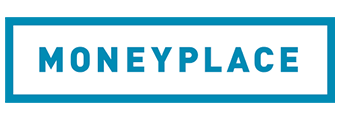Fact Checked
| Lender | Car Loan | Interest Rate | Comparison Rate* | Monthly Repayment | Interest Type | Vehicle Type | Maximum Vehicle Age | Ongoing Fee | Upfront Fee | Total Repayment | Early Repayment | Instant Approval | Online Application | Tags | Row Tags | Features | Link | Compare | Promoted Product | Disclosure |
|---|---|---|---|---|---|---|---|---|---|---|---|---|---|---|---|---|---|---|---|---|
5.99% p.a. | 7.12% p.a. | $580 | Variable | New | No Max | $8 | $400 | $34,791 |
| Promoted | Disclosure | |||||||||
6.57% p.a. | 7.19% p.a. | $588 | Fixed | New | No Max | $0 | $250 | $35,278 |
| Promoted | Disclosure | |||||||||
6.52% p.a. | 6.95% p.a. | $587 | Fixed | New, Used | No Max | $0 | $350 | $35,236 |
| Promoted | Disclosure | |||||||||
6.09% p.a. | 7.22% p.a. | $581 | Variable | New | No Max | $8 | $400 | $34,874 | ||||||||||||
9.49% p.a. | 10.93% p.a. | $630 | Fixed | New, Used | No Max | $13 | $395 | $37,795 | ||||||||||||
7.99% p.a. | 8.99% p.a. | $608 | Fixed | New, Used | No Max | $9 | $265 | $36,489 | ||||||||||||
6.74% p.a. | 7.57% p.a. | $590 | Fixed | New, Used | No Max | $0 | $595 | $35,422 | ||||||||||||
6.29% p.a. | 6.72% p.a. | $584 | Fixed | New | No Max | $0 | $0 | $35,042 | ||||||||||||
6.99% p.a. | 7.69% p.a. | $594 | Fixed | New | No Max | $0 | $499 | $35,634 | ||||||||||||
6.49% p.a. | 6.84% p.a. | $587 | Fixed | New, Used | No Max | $0 | $250 | $35,211 | ||||||||||||
7.39% p.a. | 8.19% p.a. | $600 | Fixed | New, Used | No Max | $7.5 | $195 | $35,974 | ||||||||||||
6.59% p.a. | 7.72% p.a. | $588 | Fixed | New | No Max | $8 | $400 | $35,295 |
| Promoted | Disclosure |
Frequently asked questions
Just like any loan, qualifying for a car loan requires meeting general lending eligibility criteria. This means applicants are required to be over the age of 18, possess Australian citizenship or permanent residency and earning consistent income. In order to meet responsible lending requirements, lenders are required to ensure any loan product they approve is able to be serviced and will not put the borrower at harm of financial instability or risk.
When scouring the market for a car loan, it’s important to note each lender will offer features unique to their product offerings. Selecting a car loan that’s right for you means selecting one that fits your financial position by looking at:
-
Whether you can make extra payments on your loan without penalty
-
Whether you can pay out your loan early without penalty
-
Interest rates on offer
-
Repayment periods
-
If there are any additional fees
-
Approval times
The majority of car loan lenders in Australia offer a maximum term of up to seven years, although borrowers often choose loans in the three to four year range. Some lenders do offer car loan terms as long as 12 years, after which your new wheels may be on its last legs. When it comes to determining the length of a car loan, it’s important to understand the longer the car loan term, the lower your monthly repayments will be - yet the greater amount of interest you will be charged over the life of the loan.
If you are considering a car loan to purchase your new set of wheels, having a deposit or down payment can reduce the amount of repayments and interest paid over the life of the loan. As a rule of thumb, the larger the deposit, the less you’ll pay overall, which is particularly important for a car as it’s a depreciating asset.
There are a number of different ways to apply for a new car loan. You can go directly to a lender, you can organise finance through a broker, or organise the dealership to get a car loan for you.
With most lenders, you can typically apply over the phone or via an online application form. Approval times can range anywhere from as little as one hour to a few days depending on the lender.
When the time comes to apply, you'll need to provide documentation which may include a driver's license, passport, proof of income and savings, payslips, details of assets, bank statements, and utility bills.
Use Savings.com.au's car loan calculator to get an idea of what your repayments will cost you. Simply enter the loan amount, vehicle price, loan term, interest rate, and repayment frequency to find out your estimated repayments.



























